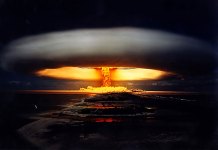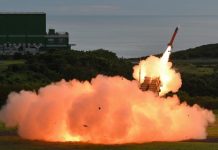What is the New US Policy on Global Conflicts? Our troops will fight to win,” – these are the words of the American president sounded at the military base of Fort Mayer in Arlington, Virginia. Donald Trump delivered a speech on the new US strategy for Afghanistan, where he heavily criticized Pakistan for harbouring terrorists.
This new US Policy has not become something out of the ordinary. On Trump’s account are direct threats against North Korea, the continued bombing Syria and hints of readiness for a forced scenario in Venezuela. At the same time, during the election campaign, the future president counterposed himself to former Secretary of State Hillary Clinton, who, he said, could unleash a “third world war”.
US Policy in Syria
One of the best proofs of how the position of the American president on key issues on the foreign policy agenda has changed is his account in the social network Twitter. A clear example: back in June 2013, Trump said that the United States had better “stay away” from Syria. “What do we get for our lives and billions of dollars? Nothing,” he wrote.
He even congratulated the US military on the successful bombing. And again on Twitter.
US Policy in North Korea
Such a turn has affected also the Juche state, or more precisely – its leader Kim Jong Un. In May 2016 Trump said he was ready to personally communicate with the leader of the DPRK and treat him and the North Korean delegation with hamburgers in Washington. In June of the same year, the future owner of the White House said that he did not understand “what’s wrong” in having a dialogue with the leader of the DPRK.
After the July tests of Pyongyang’s ballistic missiles, Trump changed his rhetoric. Such tough statements on the DPRK from the first person of the American state have not been heard. “North Korea should not put forward threats to the United States, they will be met with fire and fury, which the world has never seen,” said the head of the White House on August 8. However, after just two weeks Trump said that Kim Jong-un “began to respect” the US, and added that “something good can come out of this.”
US Policy in Venezuela
Trump never had a warm feeling for the leadership of Venezuela – neither Hugo Chavez nor Nicolas Maduro. The same can be said about Barack Obama. In its executive decrees, Venezuela was presented as a “threat” to US national security. But Obama did not threaten the Bolivarian Republic with war.
According to the Institute of Latin American Studies of the Russian Academy of Sciences, the former president pursued a policy of “soft isolation” of Venezuela in Latin America. “We have many options for Venezuela, by the way, I will not exclude the military option,” said Trump. Journalists asked Trump whether the US-led military operation is implicit in this. “We are not talking about this, but the military operation and the military option is exactly what we can resort to,” the president concluded.
The reaction of the President of Venezuela, Nicolas Maduro, did not take long. “Why did he commit this blunder, this grossest mistake that has ever occurred in a Latin American country in 200 years of relations?” Maduro said.
US Policy on Relations with NATO
During the election campaign, Trump became a symbol of isolationism, called NATO “an outdated organization” and argued that Washington’s military defence of its allies and partners should not be free for them.
At the same time, he advocated increased funding for the armed forces. This selective approach has provided tremendous support to Trump among the military. When he became president, he did not refuse his vision. What is it worth only the budget proposal, which the president sent to Congress in March. It is expected to reduce the funding of all ministries, except for three: defence, internal security and the Ministry of Veterans Affairs.
The president was not so consistent on the issue of supporting NATO. “I consider NATO an outdated organization she created many decades ago when we were in other countries and the threat was different..” –Trump said in March 2016. After winning the election, Trump began to add that, despite this, the military alliance was “very important” for him.
And later on Twitter, the president even wrote that he deliberately called the military bloc obsolete, so that the NATO member countries listened to it and began spending more on defence.




